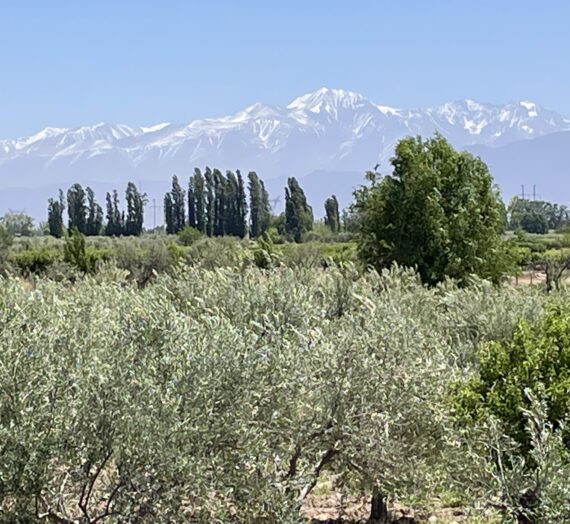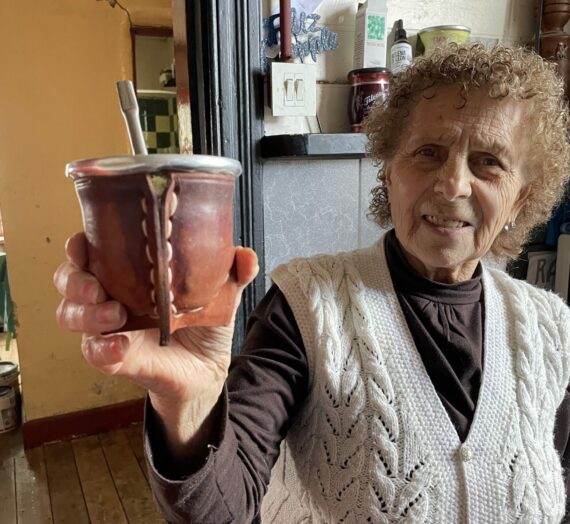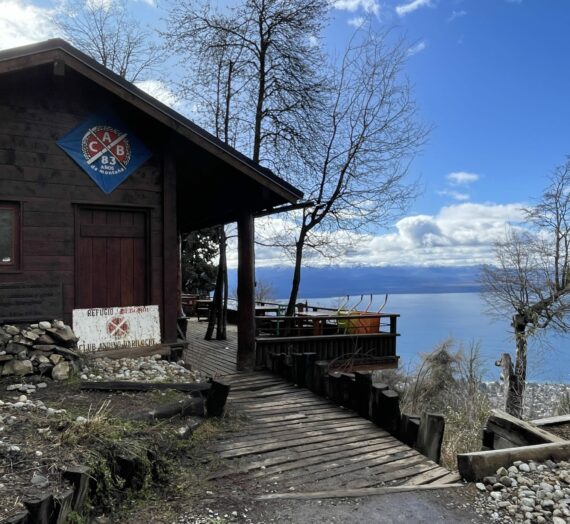Planning a trip to countries the size of Argentina and Chile is an overwhelming task. I often start by reading travel blogs and guidebooks to hone in on the places I want to visit. But after traveling in Colombia and learning that I needed to really slow my pace to prevent exhaustion, I created my itinerary this time in a different way.
First, I perused the website workaway.info to identify interesting volunteer jobs. (There’s many websites that match volunteer jobs with laborers from around the world, I just happen to be a member of Workaway.info so that’s the resource I used first.) After that, I marked these potential jobs on a big map. If there was a city or a region with multiple volunteer opportunities, I knew that there was probably a reason to visit. Then, I turned to my guidebooks to figure out what was the draw for each of these places and used that information to determine which type of job would be best for how I wanted to spend my free time in each location (i.e. working at a hostel in a city, or on a farm in a rural area, etc.) Finally, I wrote to the entities who were offering the positions and based on their responses, their timeframes of availability and the changing of the seasons, I created an itinerary for travel. My plan is to spend 3-6 weeks volunteering and playing in each of the regions I want to visit.
And that is how my first long stop came to be the Lakes Region around Bariloche, Argentina. In my next post, I’ll give you more of a taste of why this region is so popular for locals and travelers year round. Today, I’d like to introduce you to my first working experience in the tiny mountain village of Villa Lago Meliquina.


















Villa Meliquina is a small town nestled in the mountains at the far end of Meliquina Lake. There are about 500 residents in this town, all with their own beautiful mountain cabins and hotels. But as it was explained to me, this town did not even exist thirty years ago. In fact, someone owned the whole valley and proposed to subdivide it to create a town. The government agreed only on the condition that this community would not have any public utility services. So, every house that is built generates their own power from solar or wind, they get their water from a well, or piped down from the mountains, and they all have their own approved filtration system for their septic. Their purpose is to keep this area rural, which is why the main road into town from the highway is gravel and there’s no bus service. If you don’t have a car, the only way in and out of town is with your thumb! I’ve become quite adept at hitchhiking since I moved here! Luckily, this is common and it’s a great way to meet the locals!



For three weeks I lived in Villa Meliquina with Mauro, Yose, and their sons Valentino and Salvador. Each day was filled with laughter, great food and a lot of work to get their hotel, “Hosteria Cinco Sentidos” and their eatery, “Casa de Te”, ready for the upcoming summer tourist season. Working as a volunteer has many benefits for me. First, I get to unpack and get to know a place for awhile. Volunteers are only expected to work about 25 hours a week and the jobs are usually varied and relaxed. I also like the chance to meet other travelers and community members, as I always have much to learn from them. Finally, volunteering saves me a lot of money as the accommodations are free and at least some meals are free to me as well.












Mauro and Yose are originally from Buenos Aires, but decided to buy property and move to Villa Meliquina about nine years ago. In the years since, they started their family, and this six-bedroom hotel with a tea house attached. It takes a lot of resources to build a business like this, especially since they also have a large yard with a huge organic garden, a large greenhouse, fruit trees and a variety of flower gardens, too. This is why the volunteers are here.
Throughout the year, Mauro and Yose manage as many as six volunteers at one time to help construct or maintain the buildings and the grounds, as well as help clean the hotel and restaurant.


Because I arrived in the springtime, I primarily worked on spring cleaning, pulling weeds, and fertilizing the gardens. I also painted doors and gates, and made some signs to advertise their business along the highway. Whatever the task was, I did it happily, grateful to be outside surrounded by snowy mountains, melodious songbirds and a beautiful blue lake in the distance. It really was an incredible place to stay.








Springtime temperatures in the lakes region (which is also considered Northern Patagonia) can fluctuate drastically. Almost every day was warm and sunny, albeit very windy, but the evenings cooled down quite quickly. The week before I arrived, they had snow, and one day while I was here, I woke up to a beautiful display of frost and ice throughout the garden.


The best part of this experience for me however, was my fellow workers and travelers. They hailed from Spain, France, England, and Canada. In our free time, we cooked together, went to the lake, hiked in the hills, played games or joined up for beers at the local pub. No matter what we did, every day was filled with a lot of laughter.
















Enjoying time with Nicolas and Amandine from France, Victor from Spain, Harry and Clemmie from England and Fred from Canada
To eat, Mauro and Yose provided baskets of fresh fruit, vegetables and basic pantry staples for us every day. They also loved to play host, introducing us to some delicious pizzas or meats on their grill, their parrilla, for a big party together. Food and wine was a big part of this Argentinian experience.












As volunteers, we shared a little cozy cabin with a wood stove for cold days and a wood-fired hot water heater which -if we planned ahead- gave us a very hot shower.








That said, the cabin was really small and rather than try to fit into the sleeping quarters upstairs, I asked if I could set up my tent in the backyard. Mauro agreed, but offered me something even better. I got to clean up the kid’s playhouse and have a sleeping cabin all to myself. I loved it!






What keeps this little mountain town alive? Tourism. As I understand it, Buenos Aires becomes insufferably hot during the summer months of January and February. This is also when Argentinian schoolchildren are on their summer vacation. So, it is very common for families from the east coast to drive the 20 hours to vacation in this mountain and lakes region. Many of the houses in Villa Meliquina are private vacation homes, used only for a few weeks a year. But there is also an incredible amount of hotels and cabins for tourists to rent during the high season of summer. It is a lovely vacation paradise. I feel so fortunate to know this special spot in Argentina as well.






Leo tautfest
Hi Becky,
You’ve a great eye for beautiful, interesting pictures. Keep on snapping! As you know, at 90+ my old body doesn’t carry me far anymore but the mind and imagination are still free to roam the world and beyond. Thanks for sharing. May good health, safety and blessings in abundance be your traveling companions. L & M
Gretchen Vos
Score! On the Kids cabin! So fun! Wish I was there!Gretchen
Racheli
Absolutely beautiful and brings back some fun memories from my youth.